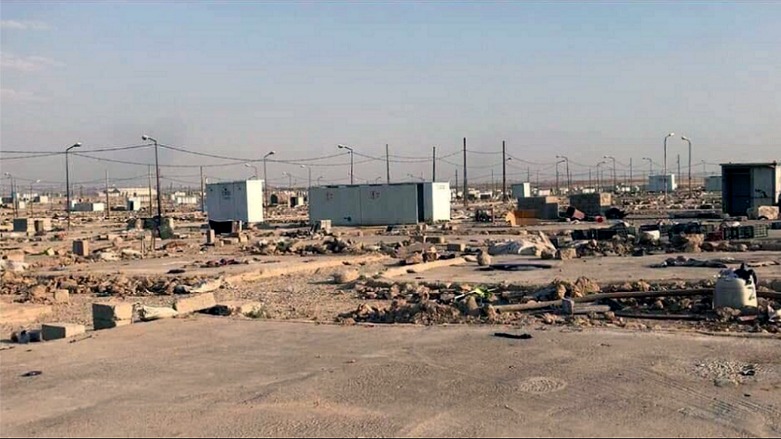Iraq begins closure of displacement camps in Nineveh governorate

ERBIL (Kurdistan 24) – The Nineveh governorate administration on Sunday closed the Jadah Camp for Internally Displaced Persons (IDPs) days after the Namrood Camp in the province was shut.
The Iraqi Council of Ministers has said it supports the decision to close the camps in Nineveh and wants to shut down all the displacement camps within the borders of the governorate.
Mansour al-Mareed, the Governor of Mosul, who supervised the closure of the Namrood Camp, told local media on Sunday that displaced persons with alleged Islamic State affiliation were transferred to the Salamia Camp. Mareed denied any claims of human rights violations against the IDPs.
A majority of the areas liberated from the so-called Islamic State are still in ruins with no basic services such as health facilities, electricity, or clean water.
Earlier this month, Iraq’s Ministry of Displacement and Migration (MoDM) denied any claims IDPs inside camps were being forcibly expelled to their homes without suitable living conditions and services.
However, the ones returning home say otherwise. A 47-year-old displaced man from Mosul, who was one of many forcibly moved back home from the Hassansham Camp, told local media his family of six live “on the ruins and rubbles of our collapsed house, without water and electricity.”
“I have no source of income; I don’t know what to do,” he added. “Instead of forcing us to go back, the Iraqi government should work on providing us with livable environments.”
Ali Abbas, director of the MoDM branch offices, said in an announcement that the Haj-Ali camp was going to shut down “in the coming days” after the IDPs return home. Abbas also noted that the Hamam al-Alil 1 and 2 camps would be merged.
There are 13 displacement camps in Nineveh governorate. The facilities were built for people who fled the threat of the Islamic state.
Last month, Iraq’s Council of Ministers decided to facilitate the return of all IDPs. Since then, hundreds of displaced families from camps have been moved to their hometowns, and many of these camps have been closed.
Iraq declared a “final victory” over the Islamic State in December 2017, three years after the militant group overran roughly a third of Iraq’s territory. Its fighters, however, continue to wage an insurgency in multiple provinces.
Iraqi officials have closed camps, forcing displaced residents to return to their liberated areas, where they then face acts of revenge by security forces or others who allege the families of having ties to the terror group.
A report Human Rights Watch (HRW) published in mid-June highlighted the experiences of displaced Iraqi families struggling to find a safe home.
Editing by Karzan Sulaivany
